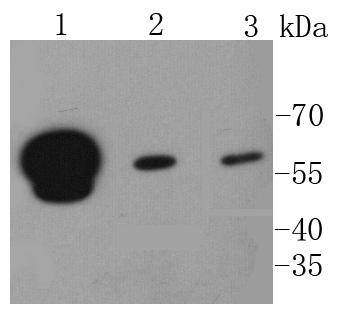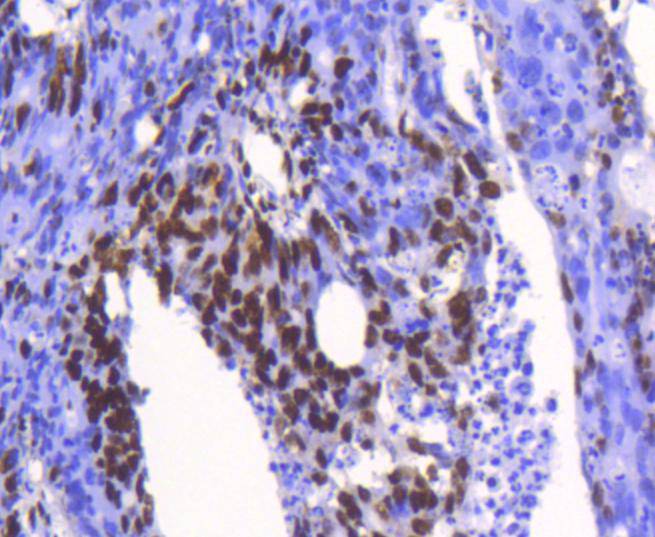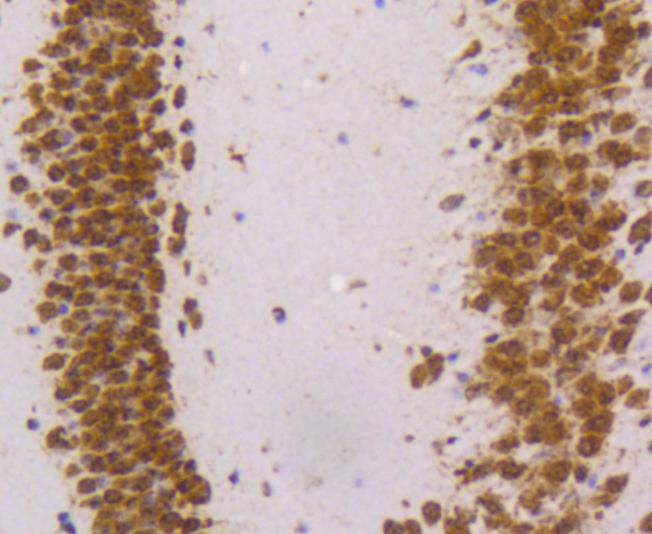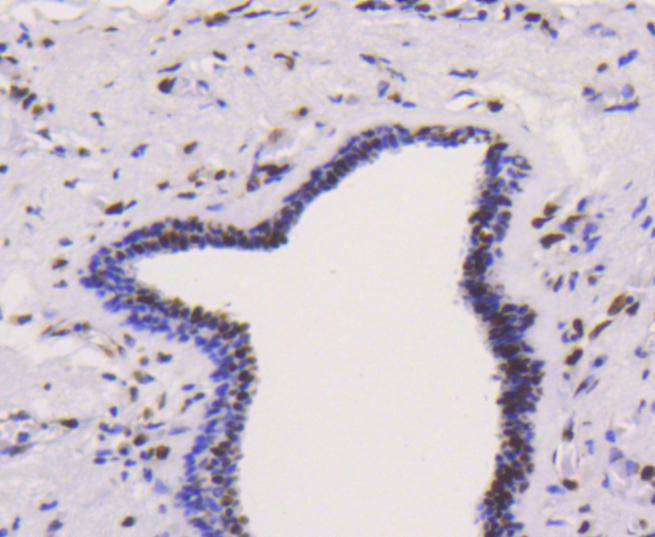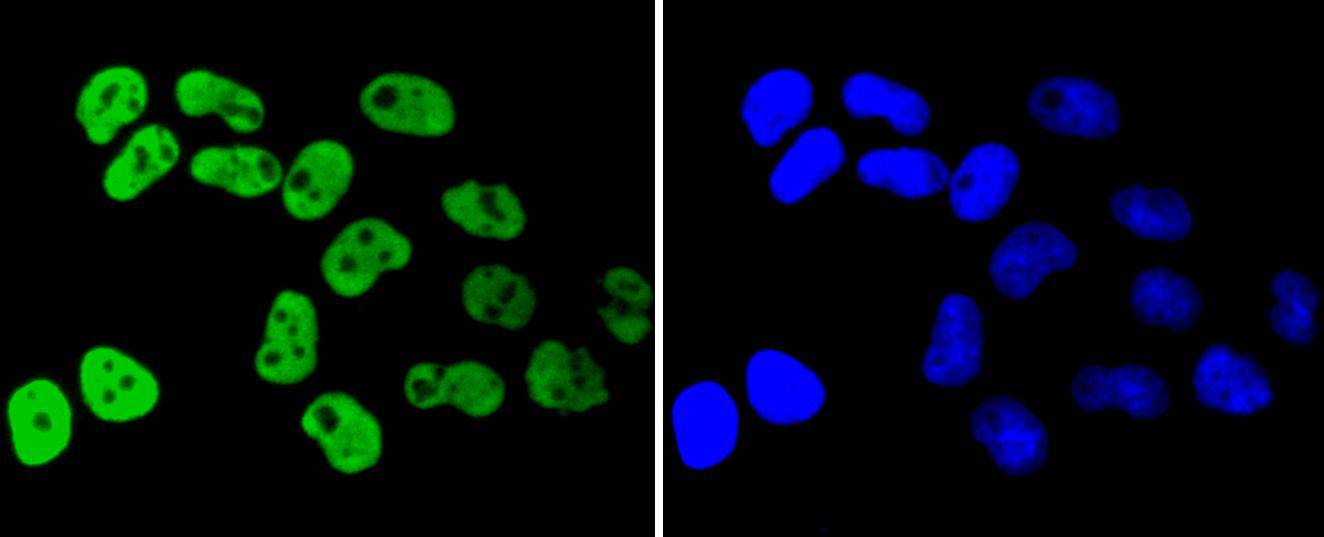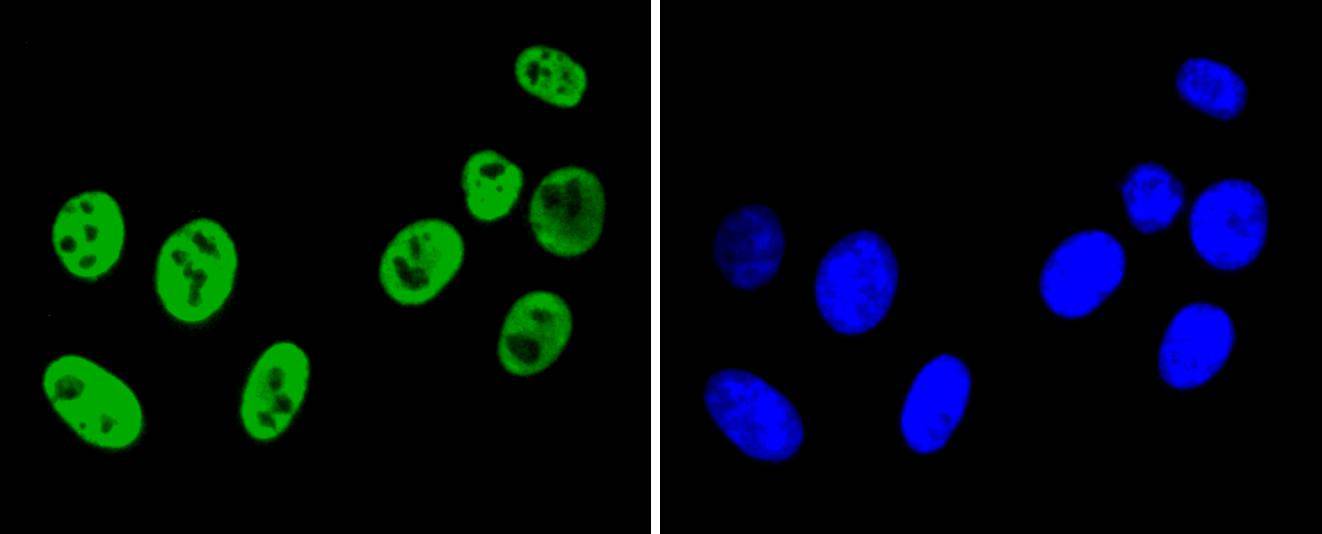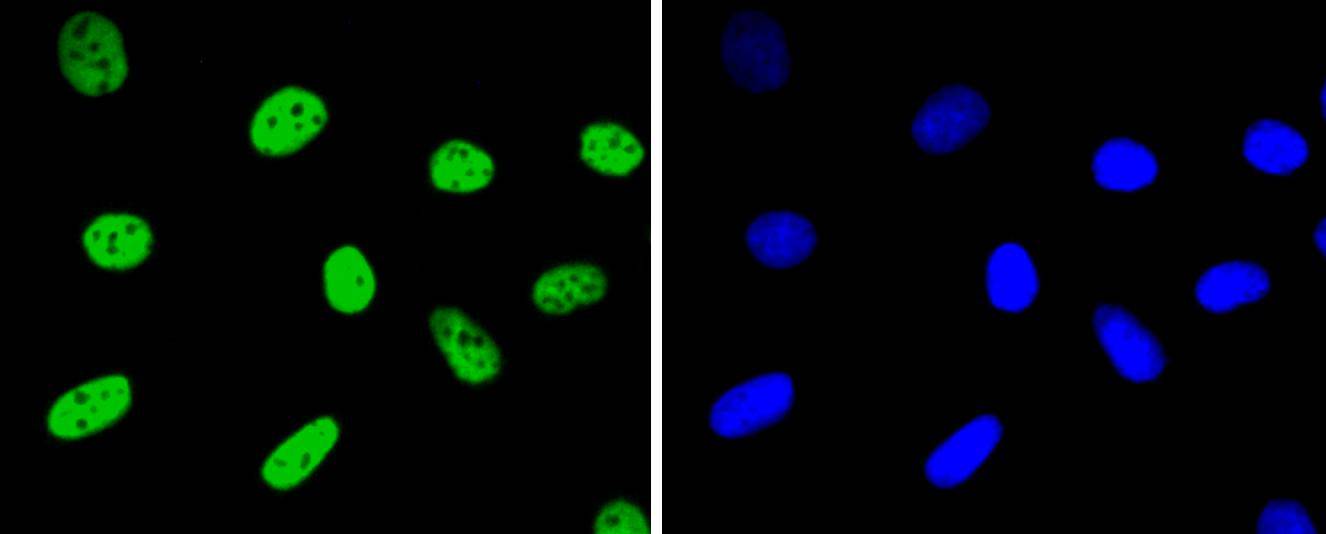Heterogeneous nuclear ribonucleoproteins (hnRNPs) constitute a set of poly-peptides that contribute to mRNA transcription and pre-mRNA processing as well as mature mRNA transport to the cytoplasm and translation. They also bind heterogeneous nuclear RNA (hnRNA), which are the transcripts produced by RNA Polymerase II. There are approximately 20 known hnRNP proteins and their complexes are the major constituents of the spliceosome. The majority of hnRNP protein are localized to the nucleus, however some shuttle between the nucleus and the cytoplasm, such as hnRNP K. hnRNP K recruits a variety of molecular partners through two K homologous (KH) domains, which are required for protein-protein interactions. hnRNP K also contains several potential phosphorylation sites, including Ser 302, the major site of PKCd phosphorylation, which are thought to regulate various cellular functions, including sequence-specific DNA binding, transcription, RNA binding and nucleocytoplasmic shuttling.

